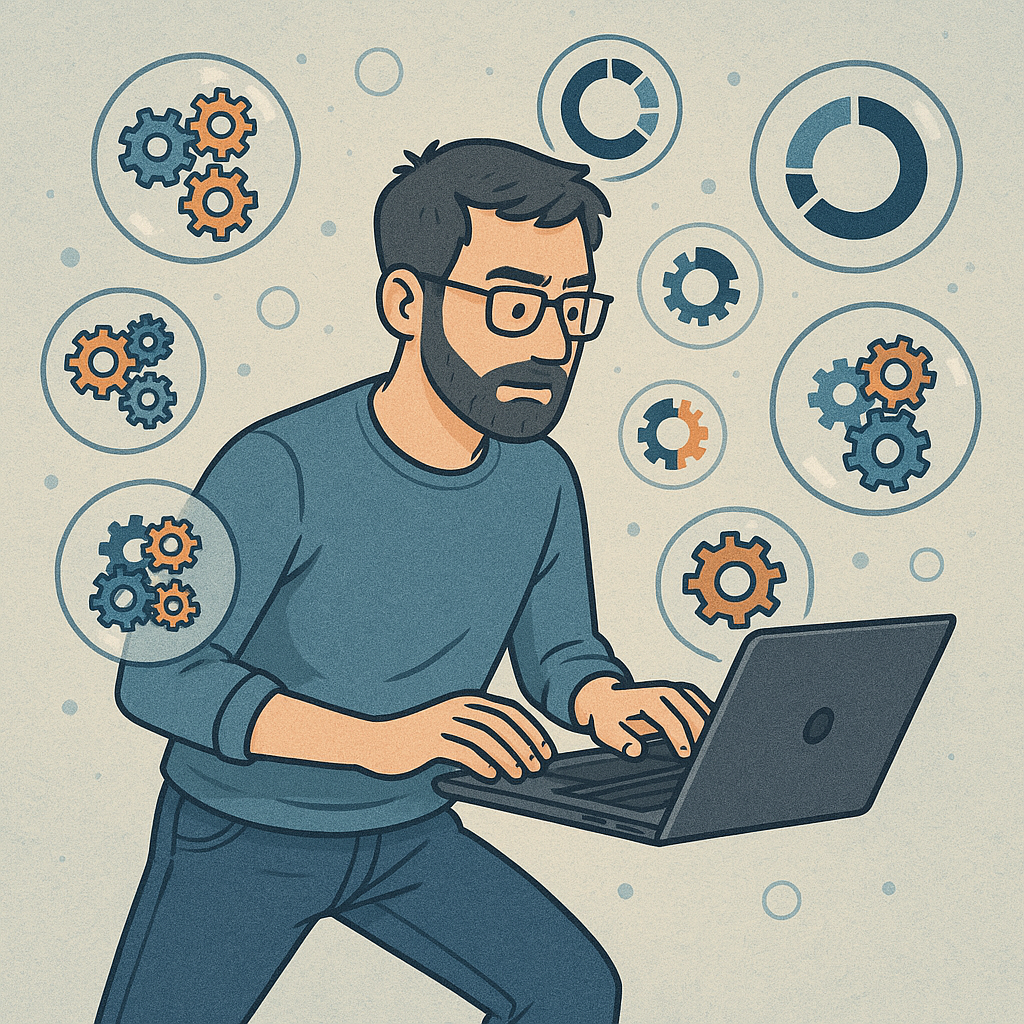Modern businesses are cooked

With the rapid expansion of LLMs and GPTs, we see many fears and rumors appear. A popular opinion is that software development is easier than ever. “Software engineers won’t be needed”—you’ve heard that already. I’m here to say: those voices are wrong. And that’s the trap.
It’s not the specialists who are affected by the rise of LLMs and GPTs—it’s the existing businesses. However, I don’t want to give you false hope. If coding is the only thing you care about, that won’t be enough to succeed. But there will still be plenty of work. Those who invest time and effort into building real products, learning how to connect with people, and selling effectively will replace all those nasty businesses hyper-focused on processes, short-term gains, and empty promises.
In this article, I might sound tough on modern business. That’s not to say there aren’t enough truly inspiring, goal-oriented, and ethical companies out there.
Nothing Lasts Forever
Evolution, in order to progress, must find a way to get rid of obsolete and outdated exemplars. The current turbulence in technology, mindset shifts, and social pressure will lead to massive change. Good times and bad times have one thing in common—both come to an end. That’s the natural flow, as entropy is like a gravity of the universe.
So “if” is not the question. “When” is. And that depends, because everything and everyone that was once born is now fighting to stay alive. But in the end—we’ll all pass. That’s the only expectation with a 100% success rate.
How do we get ready for it? How do we stand on the shoulders of giants without falling with them? These are the questions worth addressing.
The Bigger the Engine, the Greater the Mass
Ever wondered why modern cars are mostly made of thin metal, and why engines are getting smaller and smaller? Because a bigger engine means more mass. Sure, it brings more power and reliability—but it also demands a heavier suspension, a stronger body, different mountings. That increases the car’s weight even more. You’ll need bigger brakes too.
When companies grow, they gain more powerful engines. But their mass grows too. At some point, growth becomes disproportionate. The company becomes less effective. It starts becoming... lazy. People hide behind processes, procedures, and policies. They avoid decisions, risks, and facing reality. And while that might be understandable—even natural—it’s the beginning of the end.
These companies grow ugly. Disproportionate. They struggle to reach real goals, to innovate. Staying afloat gets harder. Add unprofessional management on top of that, and you’re on a straight path to losing to competitors. To missing opportunities.
Making Decisions Is Tough
“The right decision is the wrong decision if it’s made too late.”
— Lee Iacocca
Decision-making is the worst thing you can outsource. It becomes a disaster when handed off to modern LLMs. And we see it happening everywhere—people shouting, “I don’t need educated specialists anymore! I can do everything myself!”
They’re like children—flexing, pretending to be independent while getting free money from their parents. That sense of freedom? It fades for all sorts of reasons. And then reality hits—straight in the face.
If that “vibe-coded” feature is already part of your product, you’ll be desperately looking for a real specialist to fix it—fast and right. And considering your earlier reliance on LLMs and other tools that can’t save you anymore? You’re in trouble.
The bigger the mass, the longer it takes to make the right decision. Without proper planning and research up front, you’ll always be late. And no one cares about those who are late.
Summary
Being small, building on your own—it’s always been a niche. Always lacked scale. The gap between solo journeys and small teams was huge. But that’s starting to change.
LLMs can provide a lot of information. Specialists—especially engineers—are trained to keep learning their entire career. So who’s going to learn faster? The salesman using an LLM to write code, or the engineer, trained in precision and constant self-education, who learns how to sell?
Speaking of sales—I’m working on a project of my own. I want it to help both me and others get better at dealing with tough questions, refusals, and proposals.
It’s an AI-based solution to train sales skills and settings boundaries. It is meant to help people learning the dynamics of sales by modeling conversations, offering explanations, and suggesting improvements. Learning by doing starts with mimicking or repeating scenarios that already work. And really—it shouldn’t cost much more than admitting that sales is a skill worth mastering.
Dream big. Execute fast. That’s a reminder for myself.
The future is bright. The future is interesting. The future is rich.
The future is today.